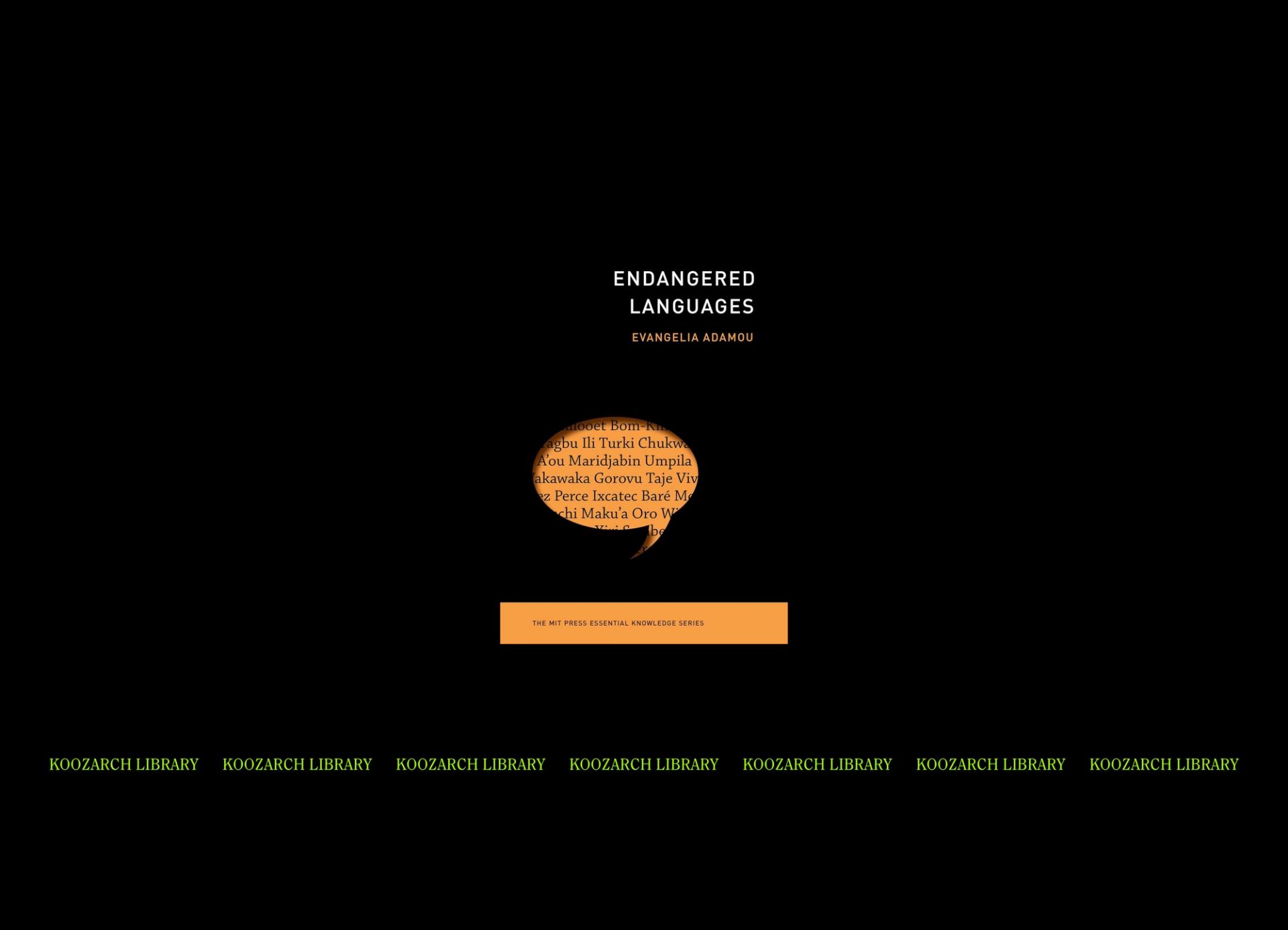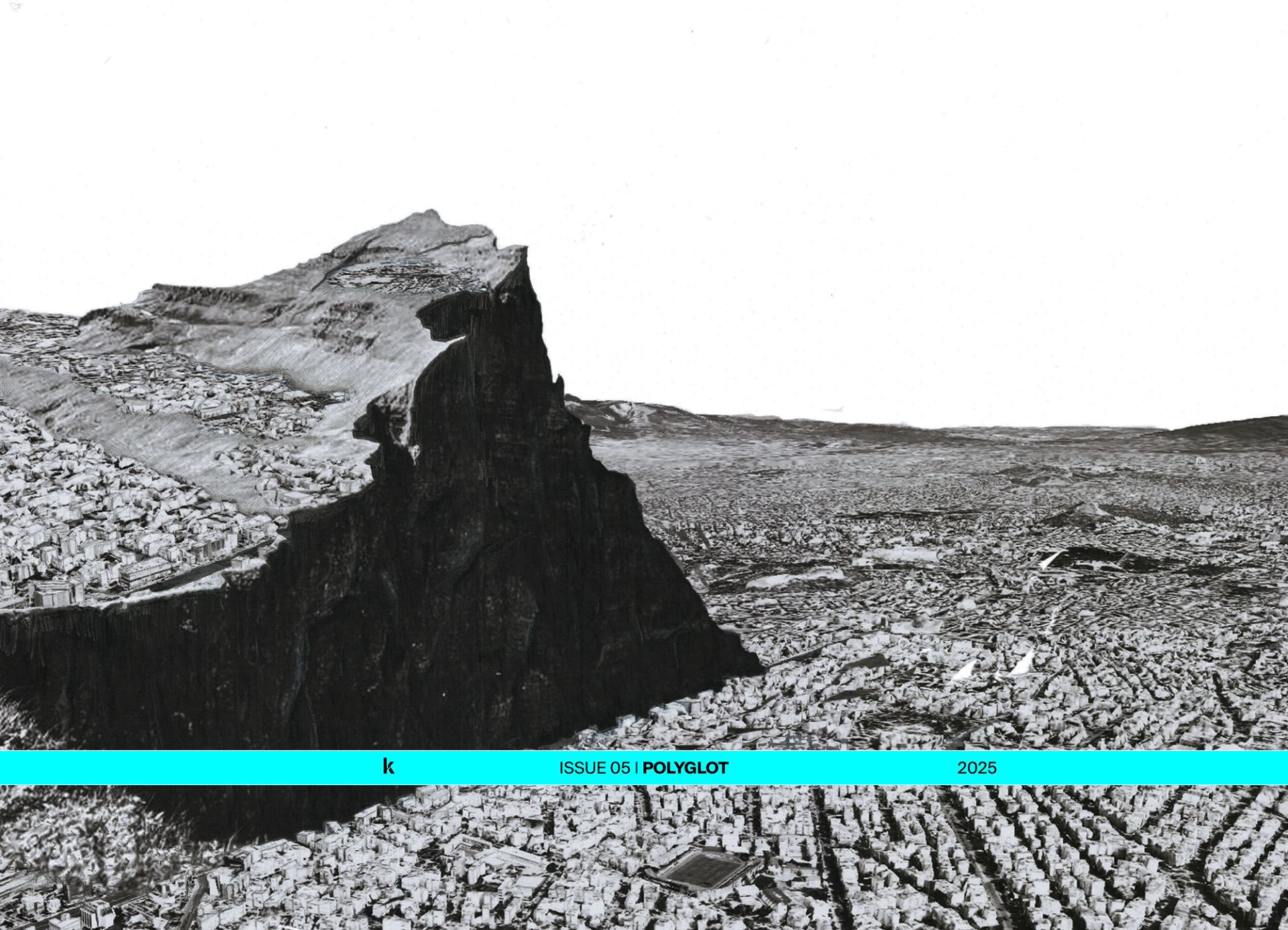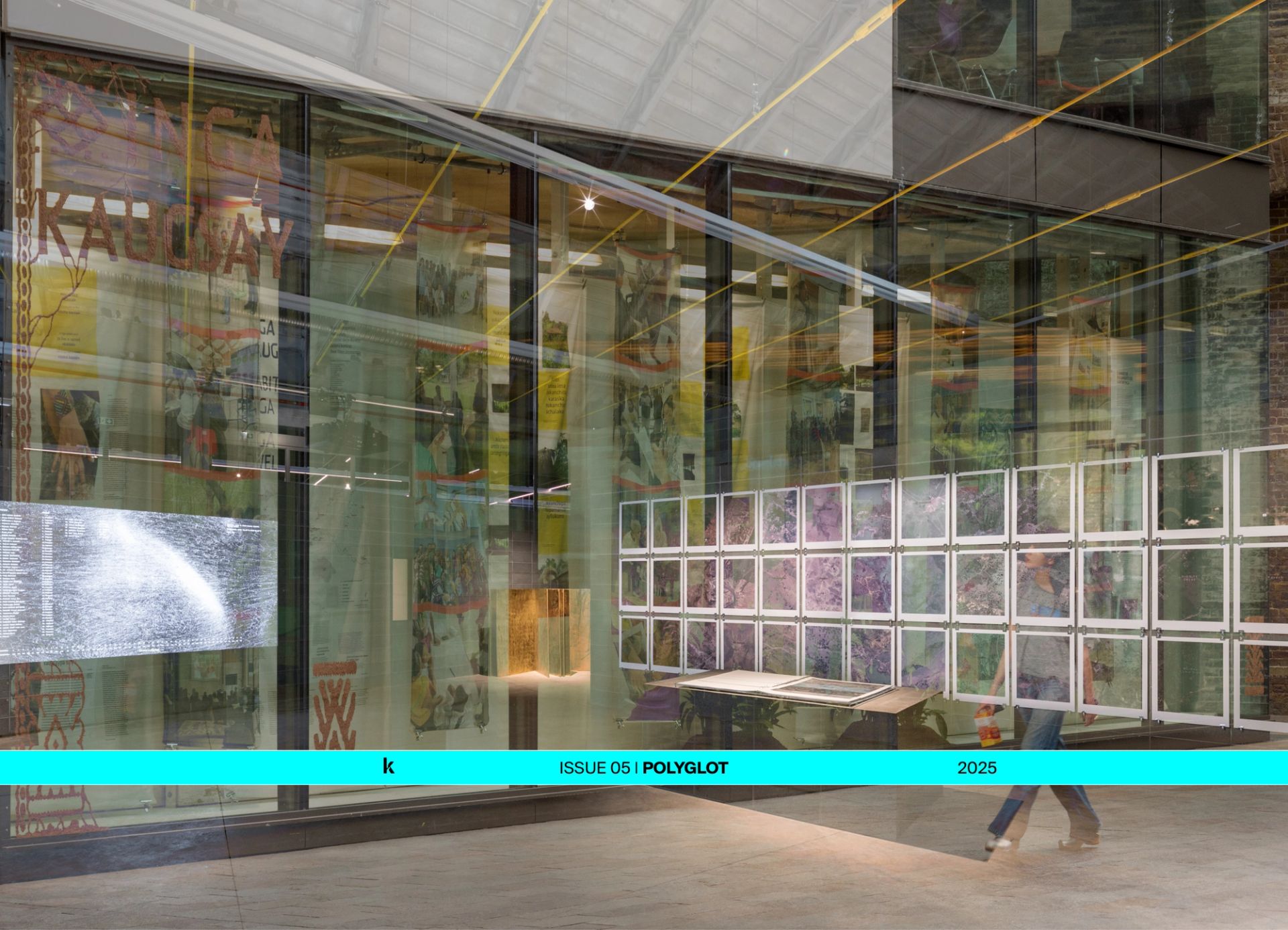It is with comradely pride, mutual recognition and love that we relate to re:arc, an institution with which we are honoured to collaborate. On the occasion of the second iteration of re:arc’s biannual symposium, Architectures of Planetary Wellbeing 2.0, we’re able to reflect and build upon the shared vision and purpose exploring the possibility of creative imagination as a resource with which to face global realities of our social and ecological systems; of the material, cultural, political and planetary concerns that make up the common ground between us all.
On the occasion of the second iteration of re:arc’s biannual symposium we’re able to reflect and build upon the shared vision and purpose exploring the possibility of creative imagination as a resource.

Photo: Andreas Deffner. Courtesy of Anupama Kundoo Architects.
Looking into words and their origins may be seen as a somewhat sophomoric trick. As an editor and fine-tuner of words and the stories they compose, however, one feels justified in etymological indulgence. Wellbeing as a term has come under some fire for its ubiquity the late twenty-teens, peaking over the period that witnessed the global COVID-19 pandemic as well the seemingly inexorable rise of oppressive if not fascistic governments, and the seismic political repercussions. Wellbeing, rather than the somewhat more rigorous or medically-defined category of “health”, became a territory of aspiration — with the attendant burdens that aspiration carries. Namely, that in order to safeguard, ensure or even perform one's personal well-being, we were told we needed to acquire the right products, accoutrements and even the right companionship — when each of these are often in scarce supply for those in the greatest need.
The explicit intention of foregrounding marginalised voices, histories and perspectives, and the focus on weaving threads between architecture, design, creative practice and climate action.
The attempt to realise a more just, caring, and restorative world might seem hard to oppose; few would argue against the need for, and optimism suggested by the notion of, collaborative and interdisciplinary practices that increase global equity, access, and resilience through the creative disciplines. In particular, I am attracted by the shared importance placed by re:arc and the KoozArch platform on the intergenerational, ancestral and lived experiences; the explicit intention of foregrounding marginalised voices, histories and perspectives, and the focus on weaving threads between architecture, design, creative practice and climate action. Looking at the spectrum of practitioners under the umbrella of this event, it is more than evident that vital innovation is not restricted to the young, nor are the stripes of wisdom accorded exclusively with age.

Photo: Andreas Deffner. Courtesy of Anupama Kundoo Architects.
Although the term finds its peak resonance in the contemporary moment, well-being has in fact been in circulation in English since the 16th century, deriving from the Old English words weal, or wela, which was used interconnectedly to describe somebody's health or wealth. That is to say, the expression in Old English meant simultaneously “in good fortune” — pertaining to wealth — or “happy”, perhaps pertaining to health. If I might think about how I would interpret wellbeing today, it would not be in the material sense of wealth but rather in the sense of realising our individual riches, and the richness that we each bring with us when we come together. If each of us is to consider the weal, wela or wealth of her being as richesse, than the notion of planetary well-being is one of extraordinary wealth one which cannot help but fill us with the confidence the generosity and the abundance with which to face planetary problems.

Photo: Andreas Deffner. Courtesy of Anupama Kundoo Architects.
In thinking about the second iteration of re:arc’s biannual symposium, Architectures of Planetary Wellbeing 2.0, I conducted a little light linguistic “research” via social media, in which I sought words in various languages that denote the act of coming together to talk — to parlay, to discuss, to converse or exchange. The various words that came back from my short call reflect a beautiful array of formal and informal situations, social and spatial structures. From my own part of the world, the Bengal delta, there is the culturally-defining category of adda, which as a verb means “to gossip or chat”. Simultaneously it works as a noun, to convey particular gathering of intellectual exchange as well as a physical location: gaach-tolar adda being the sort of group and conversation that might assemble in the shade of a tree. Further afield, the term parche, from Bogotá, refers to a patch of land — again corresponding to a particular type of space — while at the same time signifying a chat or informal colloquium. Nonkrong refers to a very Indonesian form of hanging out, while sheeko means story, but also an occasion for chitchat or gossip. Bulusma denotes a gathering, and translates literally as “the finding of each other”, while in Arabic, multaqa describes the interchange of diverse cultural and historical experiences.
All of these languages and many more shed many-hued and multifarious light on what such an event could be. A symposium, if we want to get down to it, means a drinking party: perhaps not in the sense in which it is more formally used. Yet thinking of that richness that we each hold within ourselves, perhaps we may afford to drink of one another.
Bio
Shumi Bose is chief editor at KoozArch. She is an educator, curator and editor in the field of architecture and architectural history. Shumi is a Senior Lecturer in architectural history at Central Saint Martins and also teaches at the Royal College of Art, the Architectural Association and the School of Architecture at Syracuse University in London. She has curated widely, including exhibitions at the Venice Biennale of Architecture, the Victoria and Albert Museum and the Royal Institute of British Architects. In 2020 she founded Holdspace, a digital platform for extracurricular discussions in architectural education, and currently serves as trustee for the Architecture Foundation.





